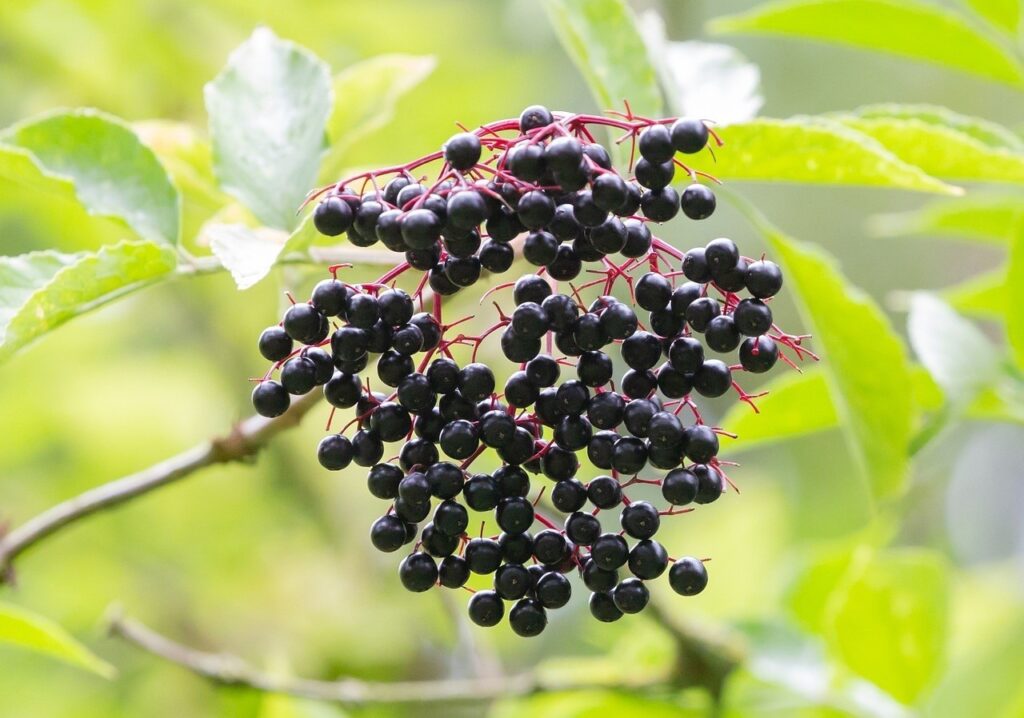Updates
The Benefits of Elderberry for Colds: How to Use It for Maximum Effect
Are you looking for an all-natural remedy to help reduce the symptoms of a common cold? Elderberry may be the answer. Elderberry has been used for centuries as a natural remedy for a variety of health issues, including colds. In this article, we’ll discuss the benefits of elderberry for colds and how to use it for maximum effect.
Introduction to Elderberry
Elderberry is a type of berry that is native to North America and Europe. It is a deciduous shrub or small tree that grows up to 30 feet tall and produces clusters of white or pink flowers in the spring. The flowers are followed by small, black berries that ripen in the late summer and early fall. Elderberry has been used in traditional medicine for centuries to treat various ailments, such as colds, fever, and inflammation.
Health Benefits of Elderberry
The health benefits of elderberry are numerous. Elderberry has been found to be rich in antioxidants, which can help protect the body from free radicals that can damage cells and contribute to chronic illnesses. Elderberry also contains vitamins A, B, and C, as well as minerals such as iron, potassium, and magnesium. These vitamins and minerals help support the immune system, which can help protect the body from infections and illnesses.
How Does Elderberry Help with Colds?
Elderberry has been used for centuries as a natural remedy for colds and flu. Studies have shown that taking elderberry extract can reduce the duration and severity of colds and flu symptoms. The extract contains compounds that help reduce inflammation in the body and boost the immune system. It also contains compounds that can help reduce the growth of viruses.
Safety of Elderberry
Elderberry is generally safe for most people when taken in recommended dosages. However, it is important to note that elderberry can interact with certain medications, such as blood thinners and immunosuppressants. If you are taking any medications, it is important to talk to your doctor before taking elderberry.
Side Effects of Elderberry
In general, elderberry is well-tolerated and does not have any serious side effects. However, some people may experience mild side effects, such as nausea, stomach upset, or headaches. If you experience any of these side effects, it is important to stop taking elderberry and speak to your doctor.
How to Use Elderberry for Colds
Elderberry can be taken in several different forms, including as a syrup, extract, tincture, tea, or capsule. The most common form is a syrup, which can be taken up to three times a day. For best results, start taking elderberry as soon as you start to experience cold symptoms.
How to Choose the Right Elderberry Supplement
When choosing an elderberry supplement, it is important to make sure that it is made from high-quality ingredients. Look for a supplement that is made from organic elderberries and is free of fillers, additives, and preservatives. It is also important to check the dosage and follow the directions on the label.
Recipes for Elderberry Syrup
Elderberry syrup is a great way to get the benefits of elderberry without having to take a supplement. Here are two recipes for elderberry syrup that you can make at home:
Recipe 1: Ingredients:
*2 cups of fresh or frozen elderberries
*2 cups of water
*1 cup of honey
* teaspoon of cinnamon
* 1 teaspoon of ginger
Instructions: 1. Place the elderberries, water, honey, cinnamon, and ginger in a saucepan and bring to a boil. 2. Reduce the heat and simmer for about 30 minutes, stirring occasionally. 3. Strain the mixture through a fine mesh sieve and discard the elderberries. 4. Allow the syrup to cool and store in an airtight container in the refrigerator for up to two weeks.
Recipe 2: Ingredients:
* 2 cups of fresh or frozen elderberries
* 4 cups of water
* 1/2 cup of honey
* 1 teaspoon of lemon juice 1 teaspoon of cinnamon
* 1 teaspoon of ginger
Instructions: 1. Place the elderberries, water, honey, lemon juice, cinnamon, and ginger in a saucepan and bring to a boil. 2. Reduce the heat and simmer for about 45 minutes, stirring occasionally. 3. Strain the mixture through a fine mesh sieve and discard the elderberries. 4. Allow the syrup to cool and store in an airtight container in the refrigerator for up to two weeks.
Other Natural Remedies for Colds
In addition to elderberry, there are several other natural remedies that can help reduce the symptoms of a cold. These remedies include drinking plenty of fluids, getting plenty of rest, and taking a hot bath or shower. Eating a balanced diet, getting regular exercise, and reducing stress can also help boost your immune system and reduce the risk of getting a cold.
Conclusion
Elderberry has been used for centuries to treat a variety of health issues, including colds. It is rich in antioxidants and vitamins that can help boost the immune system and reduce inflammation. Taking elderberry extract can help reduce the duration and severity of colds and flu symptoms. It is important to talk to your doctor before taking elderberry, as it can interact with certain medications. Elderberry syrup is a great way to get the benefits of elderberry without having to take a supplement. There are also several other natural remedies that can help reduce the symptoms of a cold. To learn more about the benefits of Elderberry, please visit EastWestHerbal.com.


















